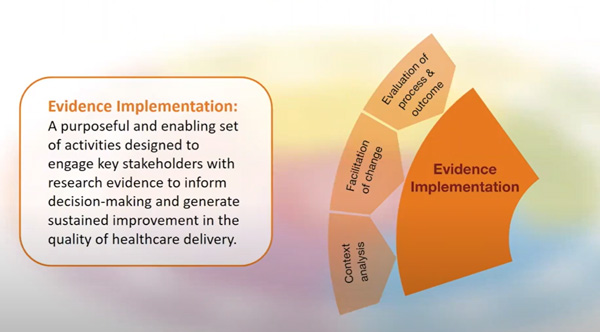
Bringing Evidence into Action in Healthcare Delivery
The intricacies of implementation science
The core essence driving implementation science is the persistent struggle to effectively apply evidence-based interventions into practice. Decades of health services research have revealed gaps, variations, and challenges in integrating proven practices, leading to discrepancies in healthcare delivery. Implementation science offers frameworks and models to address these barriers and understand the complexities involved in translating research into practice.
Editorial published in the journal, JBI Evidence Implementation, by A/Prof Craig Lockwood and Dr Noah Ivers highlights the shift from viewing implementation as a linear process to recognising its intricate nature. It emphasises the need to bridge the gap between knowing what should be done and understanding how to effectively execute it, especially in fields such as primary care where practical implementation remains a challenge.
The JBI Model of Evidence-based Healthcare is presented as a potent meta-model for evidence-based healthcare, although the methods and mechanisms for implementation are yet to be fully elucidated. It proposes potential research opportunities in integrating theories, models, and frameworks into JBI's implementation methods, aiming to deepen understanding and improve implementation outcomes.

Moreover, the editorial stresses the need to align investigative domains with theories and models to advance implementation research. It highlights the overlap and potential synergy between quality improvement designs and implementation science, proposing them as complementary approaches.
The editorial is available in the December 2023 issue of JBI Evidence Implementation:
Implementation science: a primer
Lockwood, Craig S.; Ivers, Noah M.
JBI Evidence Implementation. 21(4):307-309, December 2023.